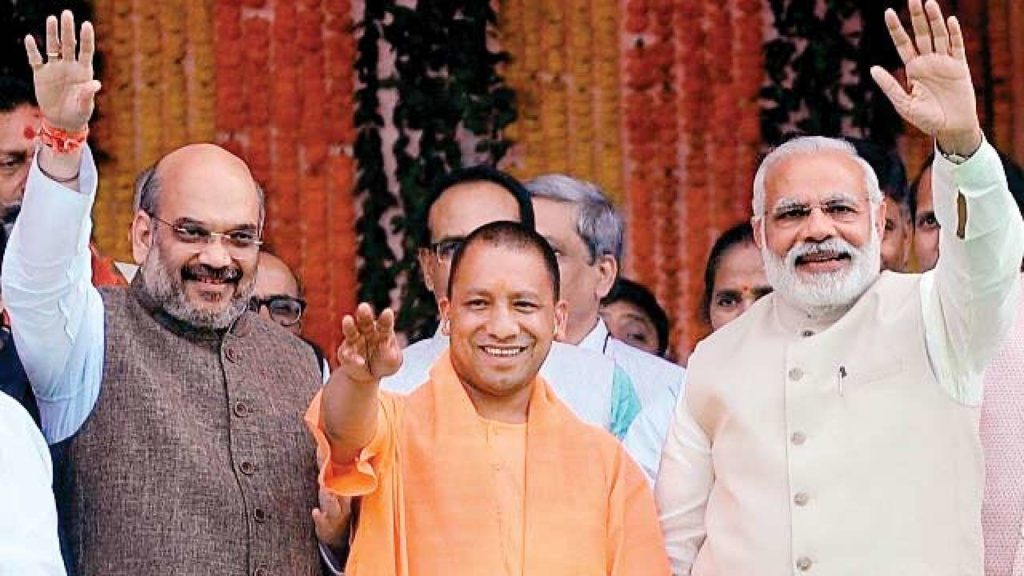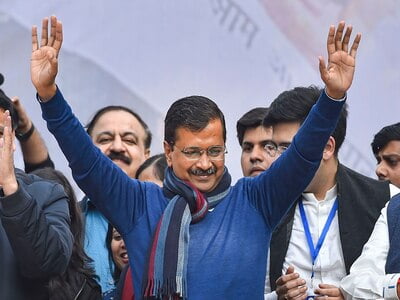Modi-Yogi juggernaut bulldozes Opposition

By Vijay Badhwar
After nearly a year of high drama: rallies, protests and yatras, sloganeering and promises, slandering and disparaging, raids and arrests, (but peaceful, unlike in Bengal!), life will now be boring without it as the results are out in five assembly elections in India, most of them as predicted, but with major repercussions towards the federal elections in 2024.

The outcome of elections in the most populous state in India, Uttar Pradesh (UP), was most far-reaching as it cast the Modi-Yogi entente in concrete, as well as conspicuously establishing the Hindutva element, reversing the past wisdom to placate the minorities at any cost, sometimes even undermining the cultural heritage of India. Besides creating landmarks for the Hindu community, BJP’s clarion call for the election was for law and order and cavilling the SP for being in bed with terrorists.
The Bharatiya Janata Party (BJP) win in UP with 273 seats from 403 contested was the first time in 21 years that a government was consecutively returned to power for a second term, albeit with a reduced majority, but also with a conundrum for the BJP that it consolidated the Muslim vote that dissipated earlier among several parties.
There are now 36 winners from the Muslim community in UP compared to 24 in the last elections in 2017, among them Azam Khan, his son Abdullah Azam Khan, jailed gangster Mukhtar Ansari’s son Abbas and also his nephew Suhaib. Azam Khan, contesting the election from inside jail, won against Akash Saxena 121755-56368, while his son, also jailed but on bail, received even more votes against Haider Ali Khan from Apna Dal (BJP ally) 126162-65059.
The Samajwadi Party (SP) led by Akhilesh Yadav increased its tally from 47 MLAs in 2017 to 125 in this election. There were some close contests as 50 seats (25 for SP) were won on a margin of less than 5000 votes.
Akhilesh Yadav was loud and vocal at his rallies that attracted huge crowds that the BJP would be routed from UP. The Samajwadi Party apparently created a mirage that it would win, to an extent that it initiated large-scale defections, including 11 ministers, from the BJP. The rout did not happen as he, after the results came in, lamented that the pandemic and Covid restrictions coupled with the Modi-Yogi Government filing criminal charges against some of his associates did not allow him to be proactive in the campaign.
Bahujan Samaj Party (BSP) faired dismally, Mayawati herself taking a back seat in campaigning for the party. She commented that Dalits and OBCs were fearful of the ‘jungle raj’ of the SP and they, instead, voted for the BJP.
The Indian National Congress (INC) was wiped out in UP as well as in other states in spite of strong campaigning by Priyanka Gandhi. The party is doomed without any real organisational structure that its senior leader Kamal Nath admitted was one of the reasons for its abysmal showing at the hustings.

Punjab saw the most intriguing outcome from the election as it routed most of the high-flying politicians from the State. Losing is one thing but cleaning the whole clan of leadership irrespective of the party colour and clan was real sweeping administered by the Aam Aadmi Party (AAP). Following the Delhi template and its CM Arvind Kejriwal, the party won 92 of the 117 seats, leaving the ruling Congress a meagre 18 seats and rendering an end for the Akali Dal Badal family that was marred with allegations of corruption and drugs in the past.
Enter Navjot Singh Sidhu and the Congress fell prey to disunity and infighting – first it was the party leadership and then the Chief Minister’s position, first dislodging a sitting CM Amarinder Singh and then his replacement Charanjit Singh Channi. The leadership bout was so badly handled by amateur Rahul Gandhi comprising the high command that the party was in complete disarray and had no chance to return in Punjab.
Navjot Sidhu was the centrepiece of dismemberment of the incumbent Congress Party, albeit exploited by Capt Amarinder Singh’s allegations that he was close to Pakistan and its PM Imran Khan. Mr Sidhu, loud and outspoken, claimed the high ground for anti-corruption and that all leadership – past and present – had conflicts of interests in business.
The public got so sick of the infighting that they routed everyone – Capt Amarinder Singh, Navjot Sidhu from Amritsar East from where he had won thrice in the past, Badal father and son; sitting CM Charanjit Channi losing to a mobile repair shop owner whose mother worked as a cleaner in a school. Labh Singh Ugoke beat Channi by a huge margin of 37,558 votes.
The BJP would easily form governments in three other states where the elections were held – Uttarakhand, Goa and Manipur.
In Goa, the BJP has won half the total number of seats but should be able to find an ally from the many independents who have won a smatter of seats. The one-month-old Revolutionary Goan Party (RGP) whose election plank was to preserve rights of Goans of Goan origin, won only one seat but spoiled it for others in opposition to the BJP.
AAP has made inroads in Goa with two seats and is optimistic that it will be a national party in the future.
In Uttarakhand, the sitting CM Pushkar Singh Dhami lost his seat as voters found him to be detached but the BJP won with a reduced majority, down 10, with 47 from 70 seats.
In Manipur, the BJP won 32 from 60 seats. It seems like a family affair and there does not seem to be a drama for the incumbent CM to rule the state again.
The stage is set now for 2024 Lok Sabha elections, BJP confident that it could continue on its path (even heading towards a Uniform Civil Code), not overly concerned about alienating certain communities.
Short URL: https://indiandownunder.com.au/?p=17566
